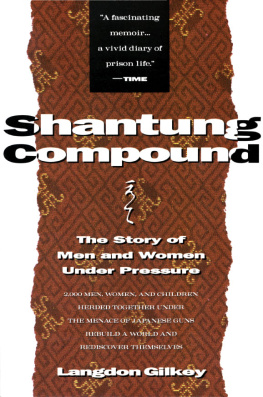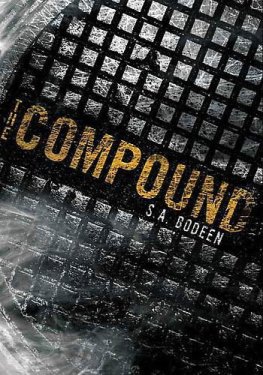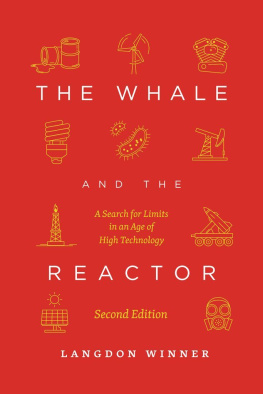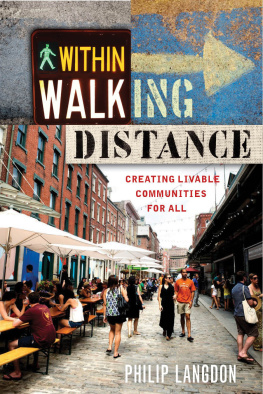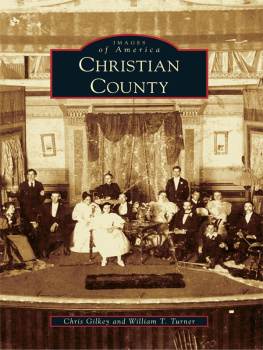Langdon Gilkey - Shantung Compound
Here you can read online Langdon Gilkey - Shantung Compound full text of the book (entire story) in english for free. Download pdf and epub, get meaning, cover and reviews about this ebook. year: 2012, publisher: HarperCollins, genre: Non-fiction. Description of the work, (preface) as well as reviews are available. Best literature library LitArk.com created for fans of good reading and offers a wide selection of genres:
Romance novel
Science fiction
Adventure
Detective
Science
History
Home and family
Prose
Art
Politics
Computer
Non-fiction
Religion
Business
Children
Humor
Choose a favorite category and find really read worthwhile books. Enjoy immersion in the world of imagination, feel the emotions of the characters or learn something new for yourself, make an fascinating discovery.
- Book:Shantung Compound
- Author:
- Publisher:HarperCollins
- Genre:
- Year:2012
- Rating:5 / 5
- Favourites:Add to favourites
- Your mark:
- 100
- 1
- 2
- 3
- 4
- 5
Shantung Compound: summary, description and annotation
We offer to read an annotation, description, summary or preface (depends on what the author of the book "Shantung Compound" wrote himself). If you haven't found the necessary information about the book — write in the comments, we will try to find it.
Shantung Compound — read online for free the complete book (whole text) full work
Below is the text of the book, divided by pages. System saving the place of the last page read, allows you to conveniently read the book "Shantung Compound" online for free, without having to search again every time where you left off. Put a bookmark, and you can go to the page where you finished reading at any time.
Font size:
Interval:
Bookmark:

Shantung Compound
THE STORY OF MEN AND WOMEN UNDER PRESSURE
by Langdon Gilkey

To my love Sonja
For even saintly folk will act like sinners
Unless they have their customary dinners.
B ERTOLT B RECHT , The Threepenny Opera
CONTENTS
This book is about the life of a civilian internment camp in North China during the war against Japan. Unlike some other volumes dealing with such a subject, this one has no horrors to relate. We in the Weihsien camp suffered no extreme hardships of limb, stomach, or spirit. As the quotation from Brecht hints, our problems were created more by our own behavior than by our Japanese captors. Thus, compared to many other internment camps, both in Asia and in Europe, ours was in fact nearly an ordinary life. That is precisely what gives the story its interest and excitement, and why it is here told.
This was a life almost normal, and yet intensely difficult, very near to our usual crises and problems, and yet precarious in the extreme. Thus my story relates an experience within which one of those rare glimpses of the nature of men and of their communal life is possible. In our internment camp we were secure and comfortable enough to accomplish in large part the creation and maintenance of a small civilization; but our life was sufficiently close to the margin of survival to reveal the vast difficulties of that task. Had we been continually tortured and starved, no representative communal existence would have been possible; had our life been more secure, the basic problems of our human lot might not have manifested themselves so clearly. Thus, as the laboratory reveals the structure of what is studied by reducing it to manageable size and subjecting it to increased pressure, so this internment camp reduced society, ordinarily large and complex, to viewable size, and by subjecting life to greatly increased tension laid bare its essential structures. Because internment-camp life seems to reveal more clearly than does ordinary experience the anatomy of mans common social and moral problems and the bases of human communal existence, this book finally has been written.
The reader may well wonder how anyone can remember details and episodes of an experience twenty years in the past. The answer is that I kept a rather lengthy journal during the internment in which were set down every fact and happening, every problem and its resolution, that came to my attention. Thus the main resource for these chapters stands very close to the life described, for the journal was largely written in camp and was completed shortly after my return to the United States in November, 1945.
I have often been asked why we did not try to escape. The reason was simple: a Westerner cannot wander unrecognized through the Chinese countryside as he might in Europe. His face and color identify him at once to any onlooker. He is thus infinitely vulnerable to any Chinese seeking the reward for his capture. To escape successfully, he must join a guerrilla band at once, who can hide and protect him. But guerrilla bands only wish to care for those who are strong, who possess some special skill that can help the group, and who speak fluent Chinese. Contacts with the guerrillas were, moreover, difficult and rare. Consequently, only two men were able to make such contacts as to allow them to escape; those of us who spoke little Chinese or had no special skills were never even considered.
Finally, it is inevitable that in attempting an analysis of our problems I should describe the sins as well as the virtues of the people in the camp. For this is essentially the subject of our story. Necessarily, therefore, this book seems to be describing the foibles, weaknesses, lapses, and selfishness of other folk, so that the impression might be given that I alone trod a saintly path through the life of the camp. At the outset it is important to state that any such impression would be false: no one stood apart from our common weaknesses and our common sins, and certainly I least of all. Different temptations beset and conquer different persons. While as an unencumbered bachelor of twenty-four, I may not have been as concerned as some others about space, food, and security, and so have been able to resist many of the temptations described in the following pages, nevertheless, I had my own moral problems in which I failed as miserably as others did in theirs. All meneach in his own wayneed the forgiving grace of God if they would be whole. This is an essential note of the Christian gospel, and it has certainly been the continual lesson of my own life. If then the sins of other men seem to be described and analyzed in this volume, let it be remembered that another book on the camp could easily tell our tale with a different cast (doubtless including me, too), playing slightly different roles but enacting ultimately the same story. To save embarrassment all around, I have changed the name of every person mentioned in the book.
L ANGDON G ILKEY
T he letter arrived in late February, 1943, at the door of the house I shared with five bachelor teachers in Peking. Rumors had been going around for weeks that the Americans and the British who were then in Peking would be sent somewhere to camp. Some said we would be shipped to Japan; some said Manchuria; some, a Chinese prison. These stories increased in volume and in flavor; something was going to happen soon, we knew. So it was with anxious concern that I tore open the long, white envelope.
In stilted English sentences, the official letter announced that for your safety and comfort all enemy nationals would be sent by train to a Civilian Internment Center near Weihsien. This was a city in Shantung Province, two hundred miles to the south. The letter went on to declare that there every comfort of Western culture will be yours. For our own well-being we could send ahead a bed or cot and one trunk apiece. We were to bring our eating utensils with us. Beyond these items we were allowed only what we could carry by hand. Meanwhile, the letter concluded, we were all to make preparations for this rare opportunity which the Japanese government was providing us.
How do you prepare for an internment camp? No one in the British or American communities knewnor did anyone know exactly where we were going or what life would be like when we got there. Further rumors told us that the camp would be in an old Presbyterian mission compound, but beyond that we had no information. I pictured a life of monotony spent in a prison cell, and so rounded up copies of Aristotle, Spinoza, and Kant. Another man, who took seriously the travel-brochure promises of the letter, lugged his golf clubs along. We were both wrong. Wiser heads in the community advised us all to bring blankets, towels, and basic camping and household equipment. They did say to be sure to pack some books, and if possible, musical instruments in our trunks. We were advised also to take our share of necessary medicines. Committees made up of the few doctors and nurses among us were formed to see that the latter items were bought and distributed so that each of us would bring some medicines with us. Everyone tacitly agreed that since the trunks might not arrive for weeks at this remote spot, we had better carry with us as much in the way of extra warm clothing and woolens as we could.
On March 25, we Americans met in the former United States Embassy compound. On the great lawn surrounded by the empty and mindless buildings of an officialdom long since fled, a motley crowd had gathered with all their varied equipment. There must have been about four hundred or so, males and females of all shapes and sizes, from every segment of society, ranging in age from six months to eighty-five years. The only thing we all seemed to have in commonbesides our overloads of possessionswas a queer combination of excitement and apprehension. Were we bound for a camping vacation or the torturers rack? Because of the uncertainty, our emotions see-sawed, voices were loud and tempers short.
Next pageFont size:
Interval:
Bookmark:
Similar books «Shantung Compound»
Look at similar books to Shantung Compound. We have selected literature similar in name and meaning in the hope of providing readers with more options to find new, interesting, not yet read works.
Discussion, reviews of the book Shantung Compound and just readers' own opinions. Leave your comments, write what you think about the work, its meaning or the main characters. Specify what exactly you liked and what you didn't like, and why you think so.

